In a covert and highly intricate mission, Israel’s Mossad and the Strategic Intelligence Service successfully retrieved the complete Syrian intelligence dossier related to Eli Cohen, the legendary Mossad operative who was publicly hanged in Damascus’s Marjeh Square on May 18, 1965.
The mission, which took place in proximity to the 60-year commemoration of Cohen’s execution, is being described by intelligence insiders as one of the most delicate and high-risk operations mounted in recent times. The materials had been hidden away for decades in the custody of the Syrian regime’s security apparatus and were heavily guarded and classified.
On Sunday, during an emotional and historic meeting attended by Prime Minister Benjamin Netanyahu and Mossad Director David Barnea, several of the recovered artifacts were formally handed over to Eli Cohen’s widow, Nadia Cohen.
Included in the collection was Cohen’s handwritten will, which he composed just hours before he was sent to the gallows. Also recovered were various personal effects confiscated from his Damascus residence at the time of his arrest.
The archive consists of approximately 2,500 items. This includes confidential documents, audio recordings, photographs, personal letters, and diary entries. A large portion of the material had never before been disclosed to the public and now provides a vivid, detailed window into Cohen’s espionage work and the interrogations he endured at the hands of Syrian intelligence agents.
Some of the particularly striking artifacts include the original keys to his Damascus apartment, counterfeit IDs he used during his missions, and numerous photographs capturing him in the company of high-ranking Syrian military and political figures.
The journals retrieved from his residence shed light on his Mossad operations, including assignments that focused on surveillance and gathering intelligence concerning Syrian army installations and strategic facilities.
The trove also contained the original copy of his sentencing by the Syrian military tribunal, a document that notably recorded the court’s permission for Rabbi Nissim Indibo, the chief rabbi of the Jewish community in Damascus, to accompany Cohen in accordance with Jewish tradition.
Additionally, a separate file marked “Nadia Cohen” was found, chronicling her international campaign to save her husband. The portfolio includes numerous letters she penned to global heads of state and Syrian leadership in a desperate effort to halt the execution.
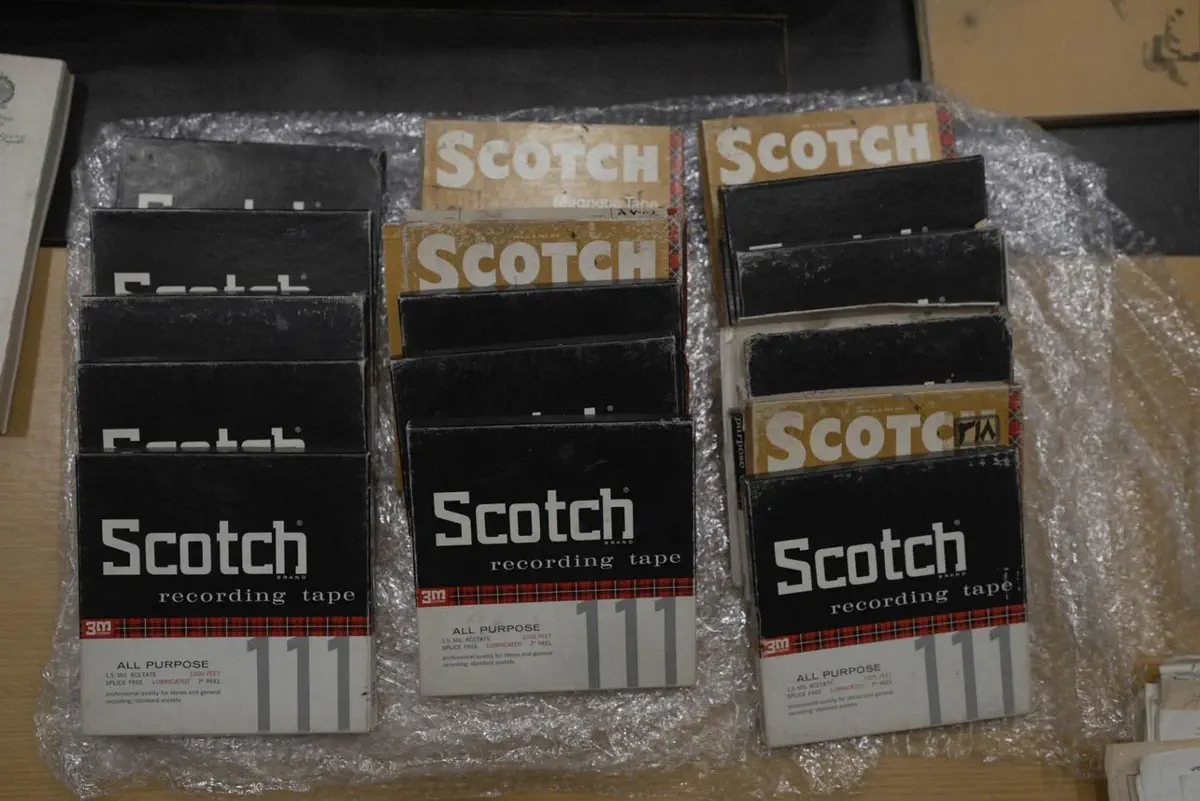
.cls-1{fill:#fff}
” alt=”enlarge” data-v-827b9ed2=”” />
credit: המוסד
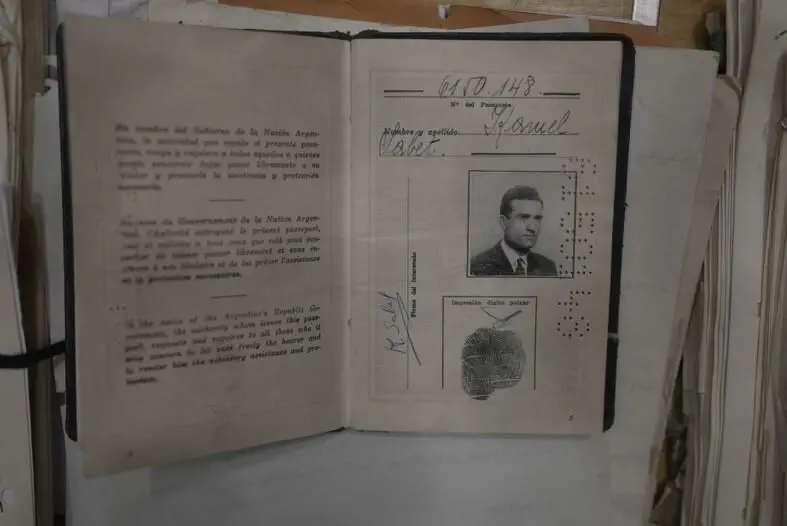
.cls-1{fill:#fff}
” alt=”enlarge” data-v-827b9ed2=”” />
credit: המוסד
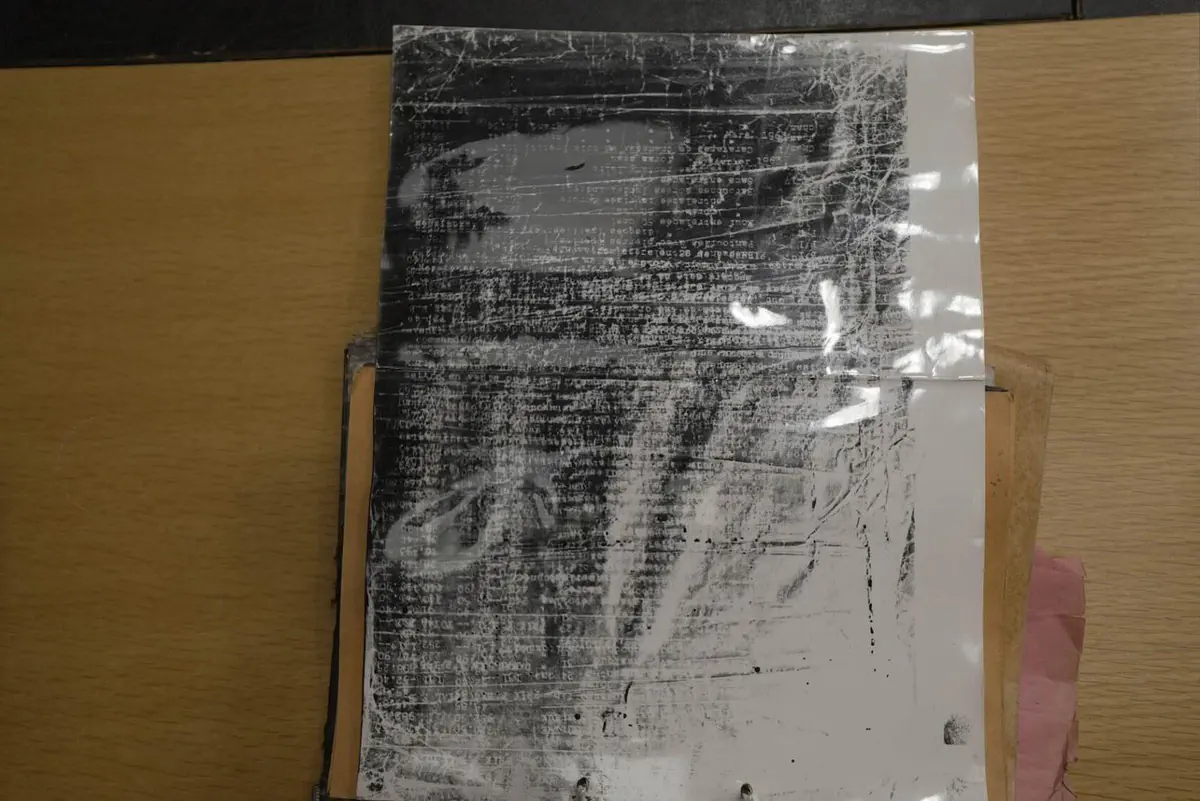
.cls-1{fill:#fff}
” alt=”enlarge” data-v-827b9ed2=”” />
credit: המוסד
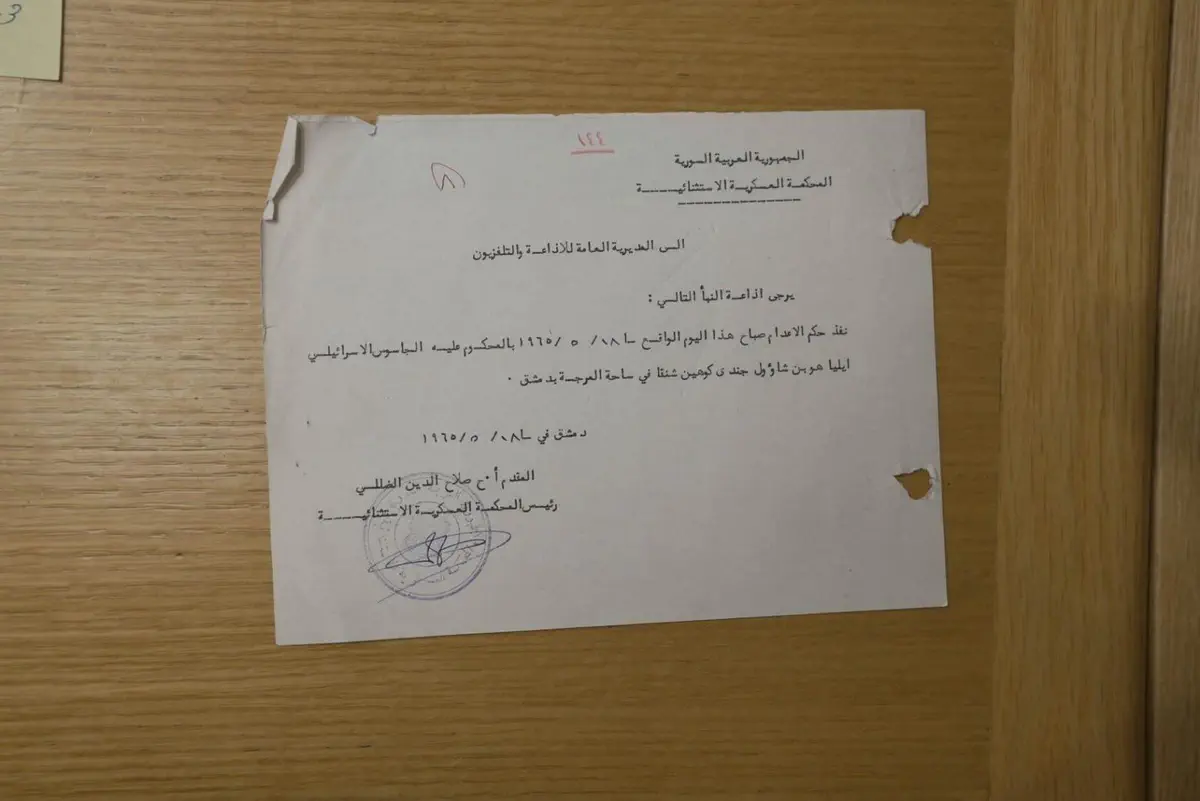
.cls-1{fill:#fff}
” alt=”enlarge” data-v-827b9ed2=”” />
credit: המוסד
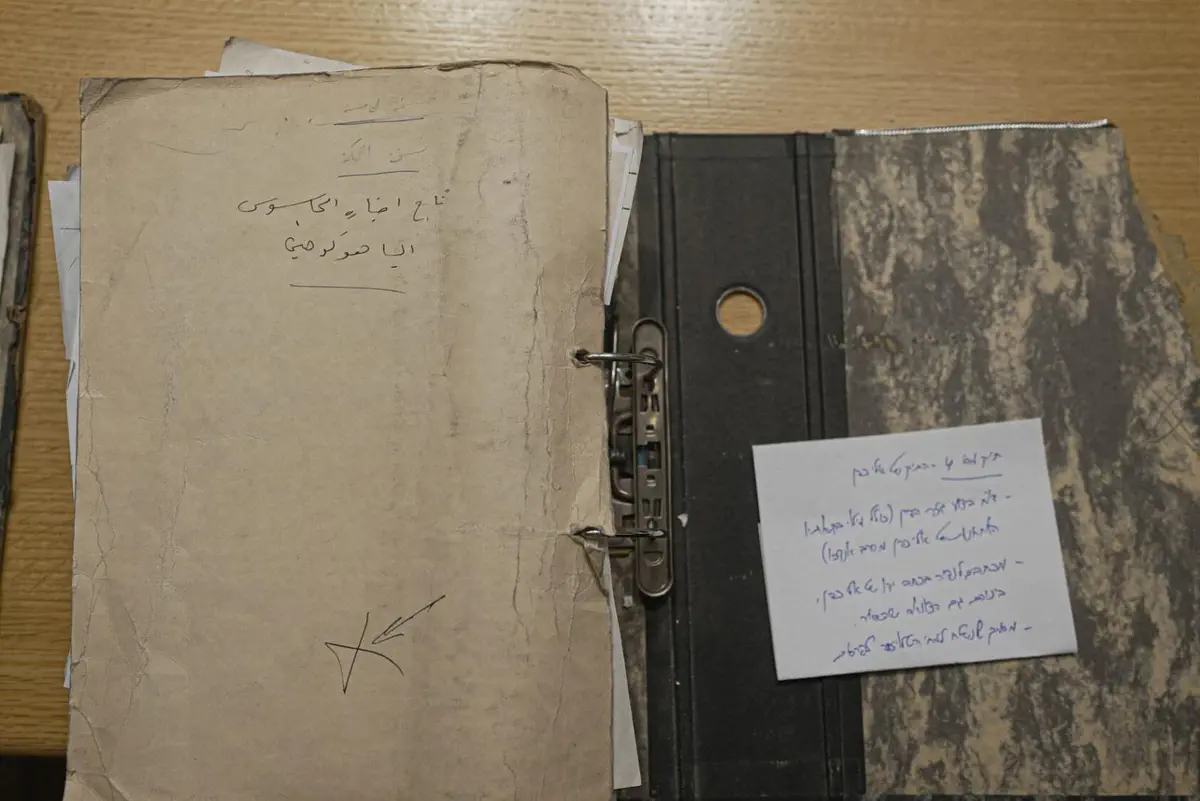
.cls-1{fill:#fff}
” alt=”enlarge” data-v-827b9ed2=”” />
credit: המוסד
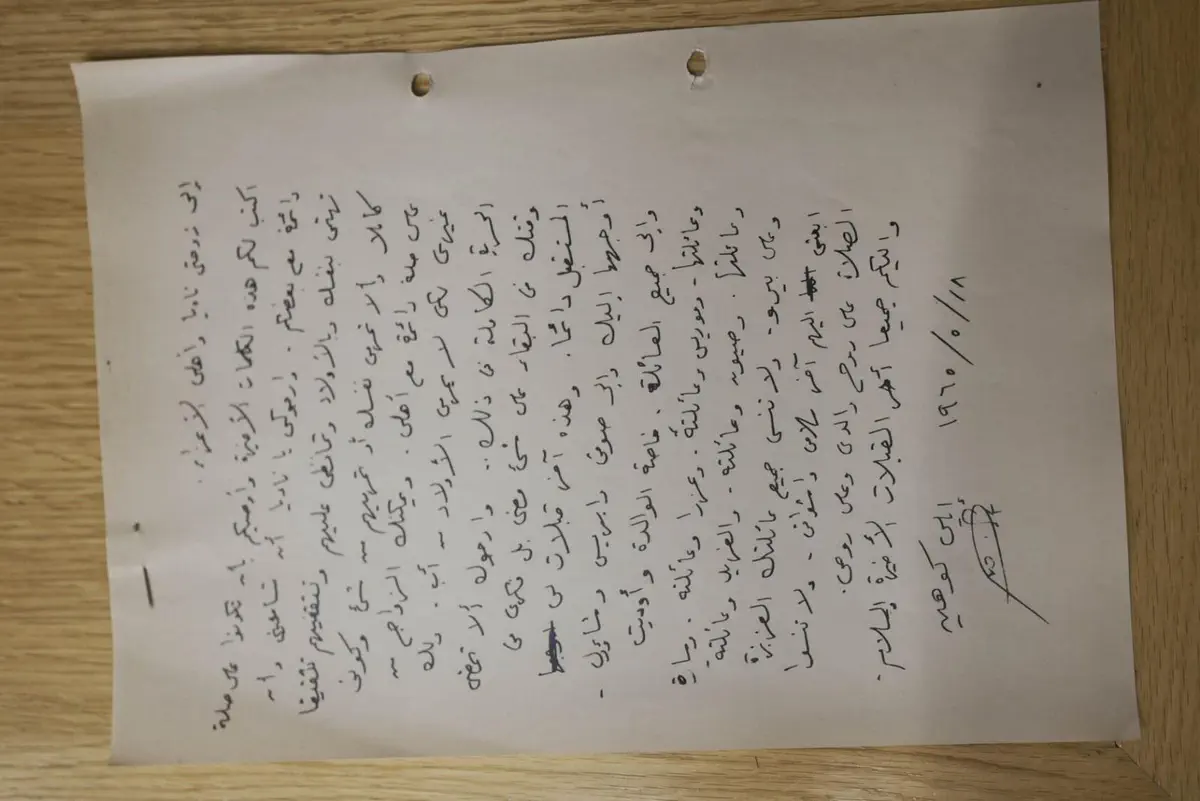
.cls-1{fill:#fff}
” alt=”enlarge” data-v-827b9ed2=”” />
credit: המוסד
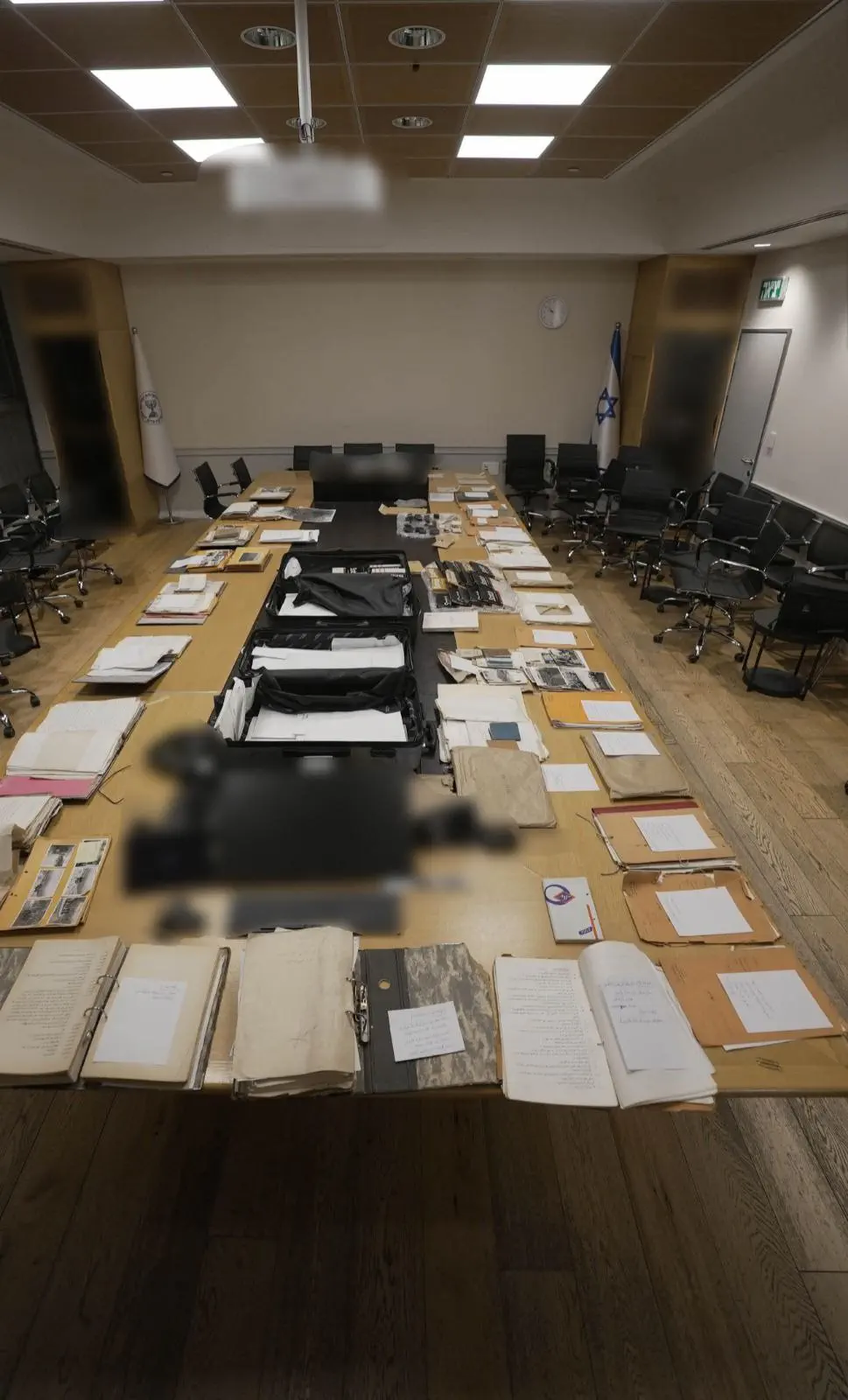
.cls-1{fill:#fff}
” alt=”enlarge” data-v-827b9ed2=”” />
credit: המוסד
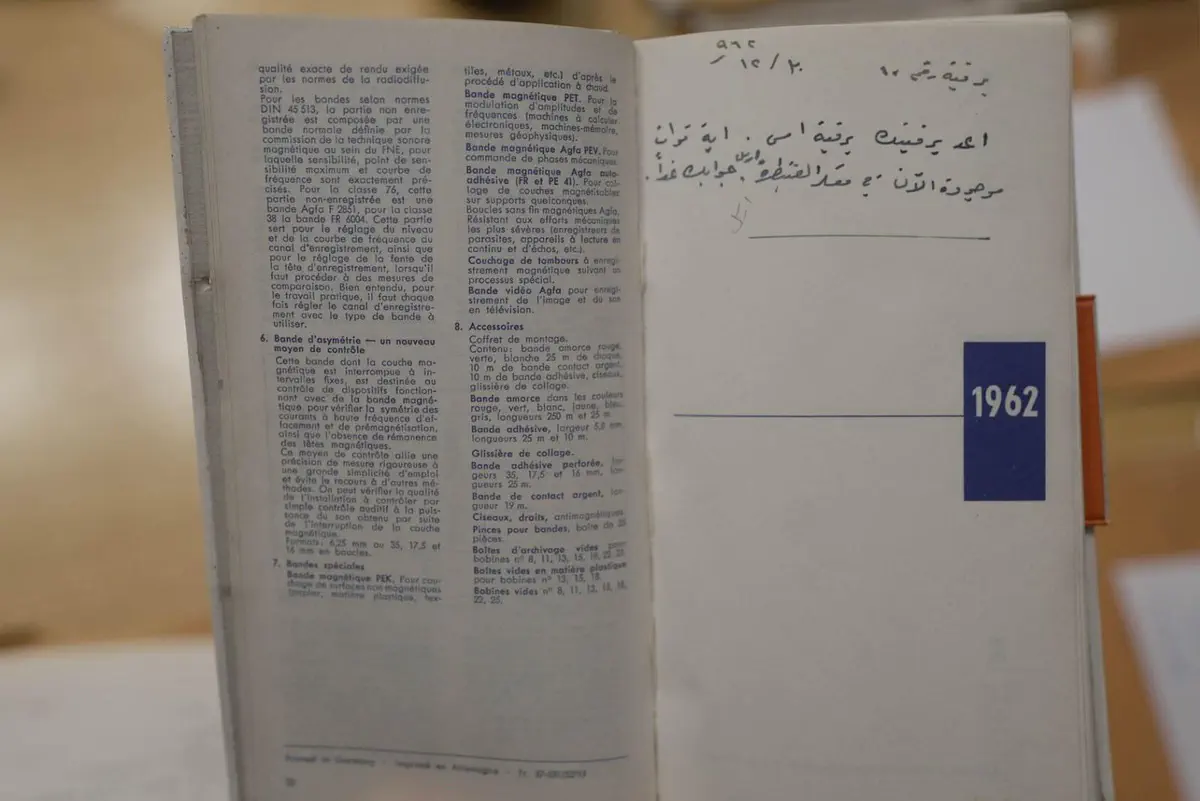
.cls-1{fill:#fff}
” alt=”enlarge” data-v-827b9ed2=”” />
credit: המוסד
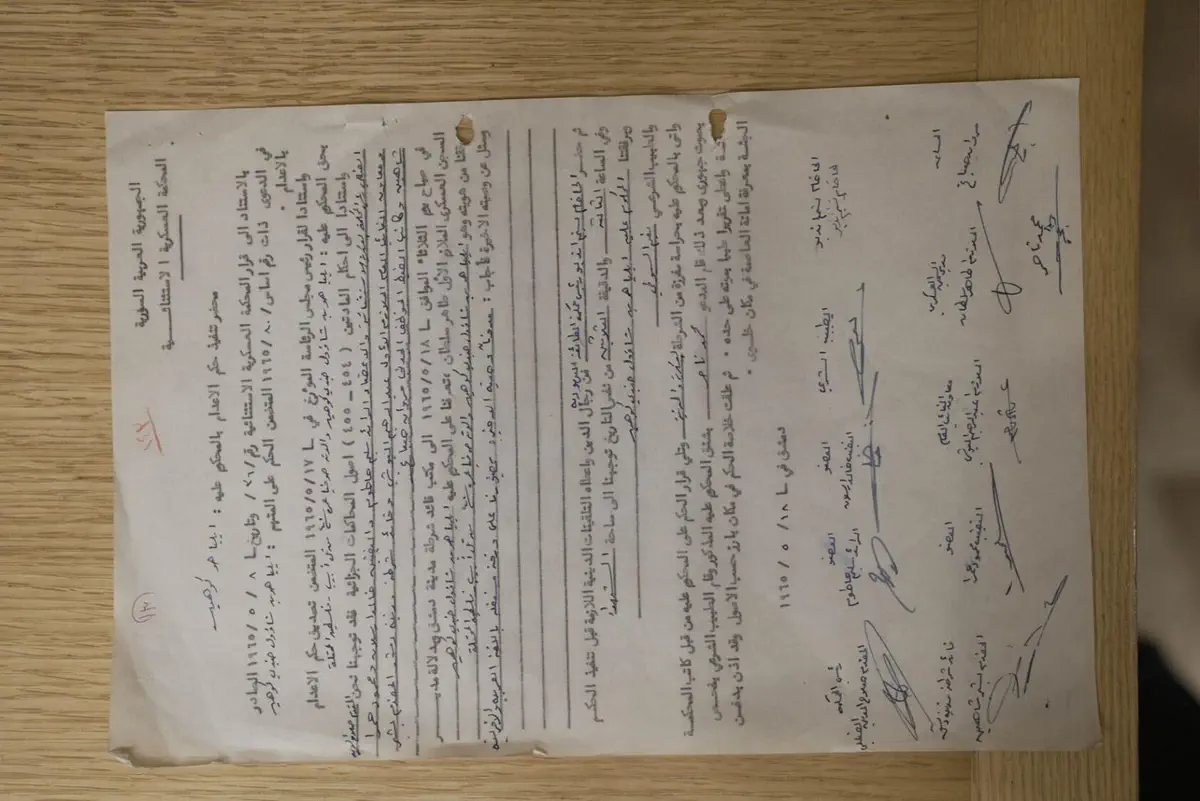
.cls-1{fill:#fff}
” alt=”enlarge” data-v-827b9ed2=”” />
credit: המוסד
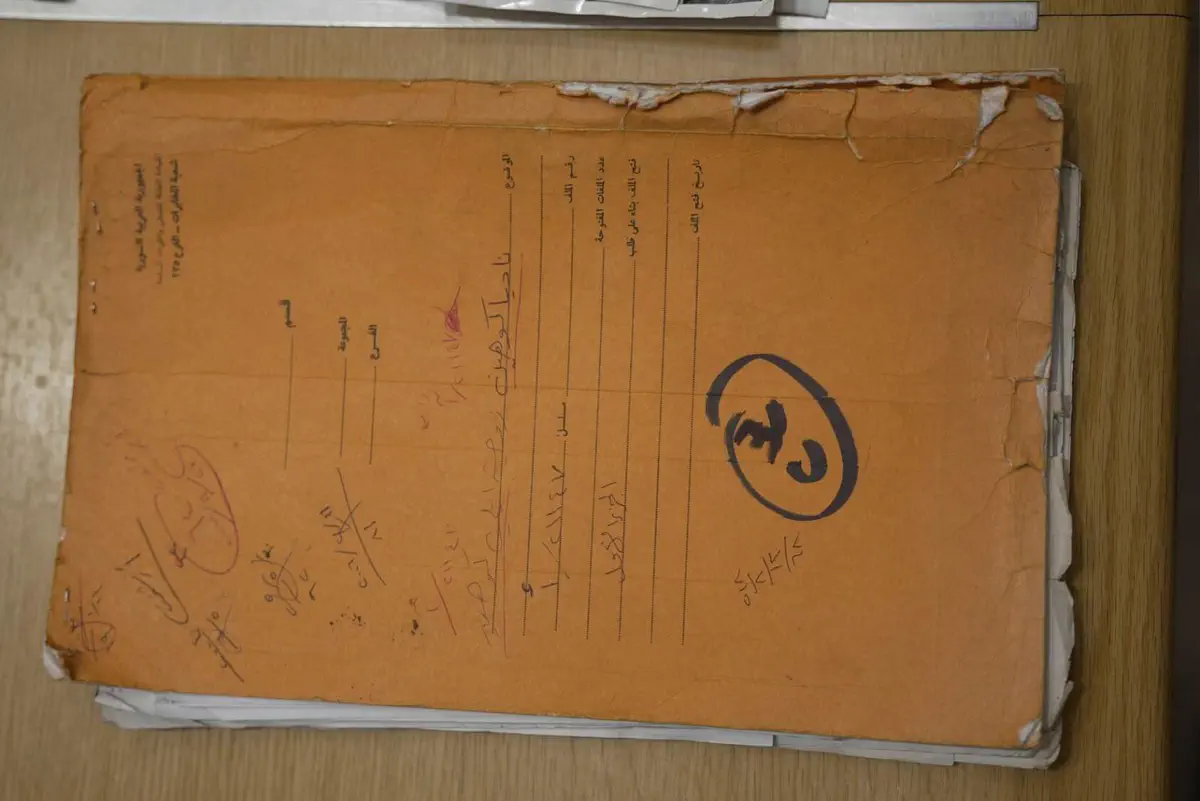
.cls-1{fill:#fff}
” alt=”enlarge” data-v-827b9ed2=”” />
credit: המוסד


Recent comments